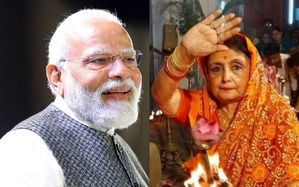
Understanding Prime Minister Narendra Modi’s Recent Statement: A Detailed Analysis
In a recent statement made by Prime Minister Narendra Modi, he addressed a crucial concern regarding the alleged exploitation of the poor in West Bengal and the need to retrieve assets confiscated by the Enforcement Directorate (ED). This statement, made on Wednesday, March 27th, has stirred significant discussions across political circles.
Examining Modi’s Assertion
Prime Minister Modi highlighted his ongoing efforts to ensure that the wealth seized by the ED from corrupt individuals is returned to the public in West Bengal. He emphasized the necessity of exploring legal avenues to ensure the restitution of these assets to the impoverished citizens.
Tackling Corruption Head-On
A prominent member of the Bharatiya Janata Party (BJP) revealed that Modi referred to Amrita Roy, colloquially known as the ‘Queen Mother,’ discussing the rampant corruption that has depleted the common people’s resources. Modi’s dialogue with Roy underscores his commitment to combating corruption and restoring faith in governance.
Dichotomy in Political Allegiances
Modi’s statement also shed light on the paradoxical situation where the current central government is resolute in eradicating corruption, while corrupt entities band together to shield each other. This observation underscores the complexity of the political landscape and the challenges faced in implementing systemic reforms.
Insights from Modi-Roy Conversation
Party insiders disclosed details of Modi’s conversation with Roy, estimating the exorbitant amount, approximately 3,000 crores, involved in bribery for securing government jobs in the state. Modi reiterated his determination to swiftly address this issue upon returning to power, promising restitution to those affected.
Responding to Criticism
In light of recent events, Modi criticized the Congress party for its wavering stance on anti-corruption measures. He pointed out the inconsistency in their priorities, prioritizing power over national interests.
BJP’s Anti-Corruption Agenda
Asserting BJP’s commitment to a corruption-free India, Modi highlighted the coalition’s relentless pursuit of a transparent governance model. He underscored the necessity of collective efforts to combat corruption effectively.
Historical References and Political Narratives
Modi’s remarks also included historical references, citing instances where political adversaries prioritized personal agendas over national welfare. This tactic serves to contextualize contemporary political narratives and align them with historical precedents.
Addressing Allegations Against Roy
Responding to accusations against Amrita Roy and her family’s historical affiliations, Modi urged Roy not to be deterred by baseless allegations. He reiterated that political opponents often resort to mudslinging to conceal their own misdeeds.
Upholding Roy’s Legacy
While acknowledging the commendable social initiatives undertaken by Roy’s family, Modi also cautioned against the politicization of these endeavors. He encouraged Roy to outline her vision for her constituency’s development and prioritize the welfare of its residents.
In conclusion, Prime Minister Narendra Modi’s recent statement underscores the urgency of addressing corruption and restoring public trust in governance. His dialogue with Amrita Roy highlights the intricacies of political discourse and the challenges encountered in implementing systemic reforms.
Read More: India May Join ‘Squad’ Military Alliance Focused on South China Sea Security

 Share
Share



